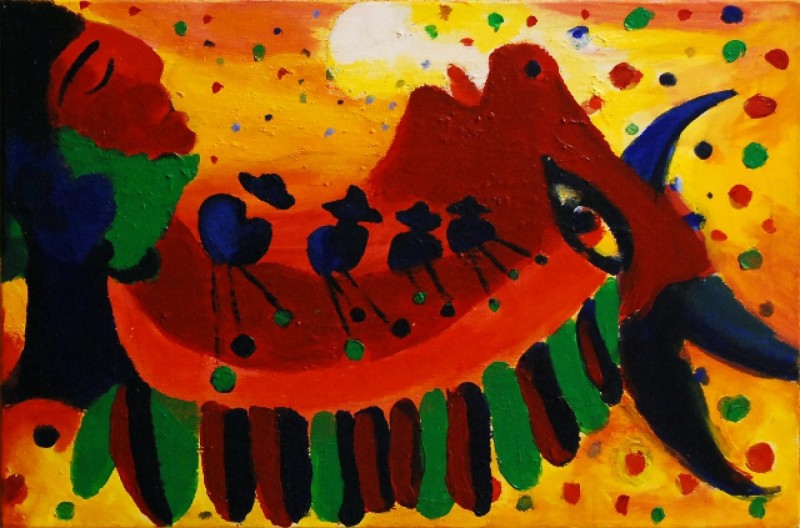To be born as a male is definitely a huge advantage in many parts of the world, but not in an absolute sense. Erick grew up in mid eighties in a popular neighborhood in the south of Mexico City. Since his early childhood, he understood that violence never gives a break no matter if you are at school or in the streets; the gang protects you but it hits you hard as well. Being male is not enough: manliness must be demonstrated every minute, especially by force. Survival is up on it. Belonging to a gang’s territory protects you from other gangs, but being inside the circle means defending the place using the violence. So, adaptation is about proving the power of ones over the others.
Erick learnt how to live within the neighborhood codes, even though he could get distance from them. Fortunately, his mother – whose occupation is a teacher – instill equality values into him. Among other questions, housework was part of Erick’s duties at home, something quite unusual in that context. His mother didn’t want her son to become one of those machos who had annoyed her so much since she left the town to go to university. In this sense, Erick understood education as a chance to revert social moulds and, with this spirit, he was awarded with a scholarship to study a master’s degree in Human Rights in United Kingdom.
Erick’s family comes from rural Mexico where male authority is even stronger. One of the most important affronts her mother launched to that system was the fight for educating herself and getting a job which led to economical independence outside the family environment. Freedom won in exchange of deep and harmful social criticisms as in everybody’s mind her place was to be dependent on a husband. For her son, machismo was experienced in another form; in the countryside, not even the wildest nature escapes at men’s domination attempts like, for example, manliness demonstrations in wild bull fairs or wild horse shows and, where once more, the cousin from the city had to readjust his masculinity during the visits not to look like a rich kid.
“I’ve always felt split between these worlds; it was always necessary to hide part of myself. To negotiate how to be a man in different places entails different behaviours and masculinity values: in the neighbourhood of Mexico City you are asked to hit hard in the gang’s name and honour, you could even be pushed to prove your manliness against your own friends. When I arrived to the countryside, just a few hours from the city, strength and bravery were also measured but by new forms; you should be able to ride a wild bull or you’re not a real man. However, in Europe, in the middle of “educated” men, let’s say University students or a left-wing young group, you must laugh at the most sexist joke or you become some kind of gender traitor. And, at last, the worst of the subversions: no way to declare oneself as a feminist man because they will not understand it, even less forgive it…”
It is quite probable that in his teens, Erick was much more aware of the terrible inequalities that machismo generates, but the real awake to this consciousness arrived in its cruellest expression with the murder of his 24-year-old sister by her ex-boyfriend and the need to face the Mexican judicial system, where impunity and misogyny are more than common. With this experience on his shoulders and other previous works in the human rights field, Erick is still looking for the gender perspective inclusion in truth access trials together with other family members of femicide’s victims in Mexico.
Nowadays Erick lives with his girlfriend between Mexico and Europe, where he works in violence prevention and alternative models of masculinity expression among youngsters in marginalised communities of Barcelona. Erick thinks justice cannot exist without reverting gender inequalities and they will not be eradicated if men are not included in the fight.
Unlike a lot of his friends, Erick won the neighbourhood’s game. He thinks men are somehow machismo victims as well as they reproduce roles that deprive them from their own sensitivity and transform them in cannon fodder for violence executors and marginalisation. Some of his childhood friends aren’t alive to explain it, others only behind bars. Humbly he asseverates he probably had more chances. Most likely, his mother moulded him with her example. Half smiling, it appears the shadow of a thought: “What kind of man would I be today if my mother hadn’t fought for her rights as a woman?”
Image chosen by Erick: “Marimba y Toro [Marimba and Bull]” from the Costa Rican artist painter José Jackson Guadamuz.

